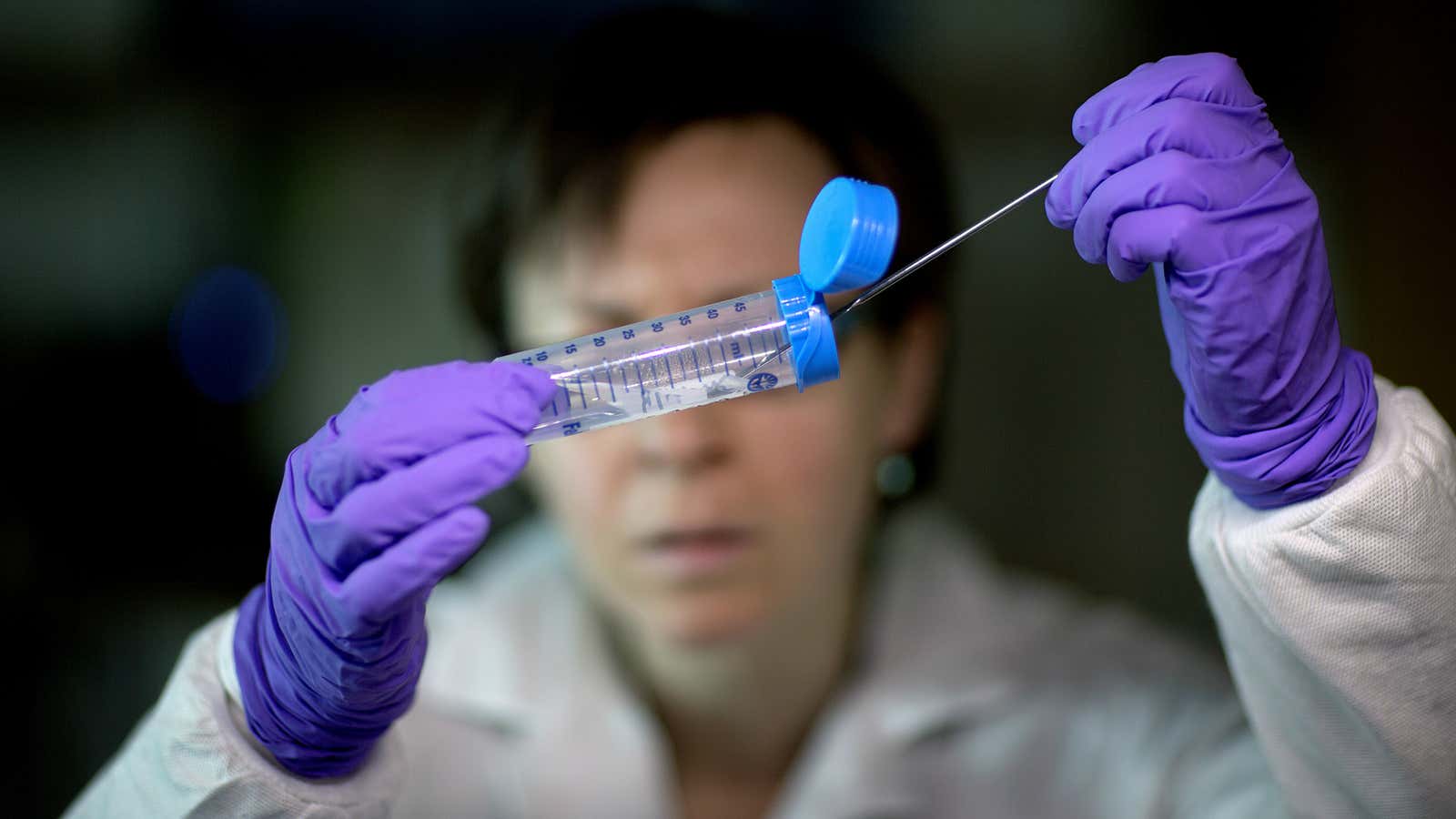Mann Packing, one of the largest suppliers of fresh vegetables in North America, has issued a massive recall of its products in the US and Canada.
The Salinas, California-based company issued an Oct. 19 voluntary recall of freshly-cut vegetables—many of them products that appear in grocery freezer aisles—that were widely distributed across the continent. Executives at Mann Packing decided to recall their products after a single positive result for Listeria was discovered during a random test by Canadian food inspectors. The company distributes to a wide range of retailers, including Walmart and Trader Joe’s, according to news reports.
“Mann Packing is issuing this recall out of an abundance of caution,” according to a US and Food and Drug Administration statement. So far, no illnesses linked to the company’s vegetables have been reported.
The dangers of Listeria poisoning can be particularly serious, and sometimes fatal for young children or older adults. The recall is proof that the modern food-safety system is working. In catching a problem before an illness is reported, lives may have been saved that might have otherwise been jeopardized.
Foodborne pathogens are tricky to track. They’re true shapeshifters that can find ways to consumers through almost any food that hasn’t been fully cooked or processed. They can travel as easily via fast-food cheeseburger as in a box of supermarket cake mix or box of fresh sprouts. It’s a routine topic of conversation surrounding the safety of eating raw foods, including cheeses and milks. It’s also occasionally made an issue by politicians—most recently US president Donald Trump—who seek to make financial cuts to the food safety system. Trump later walked back on his proposed plan.
“Recalls are the last line of protection for consumers so, yes, it’s a good thing,” Sandy Eskin, who leads the safe-food project for Pew Charitable Trusts, said in an email to Quartz. “The products will be returned or disposed of before anyone [or] a large number of people gets sick.”
Eskin added that the system will theoretically become even stronger in January 2018, when new compliance rules in the Food Safety Modernization Act will take effect. Those rules aim to prevent problems before food get to the market, including testing and addressing water-quality issues and worker training on health and hygiene issues.
